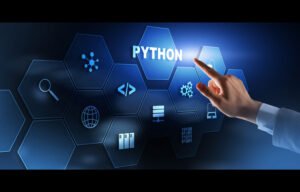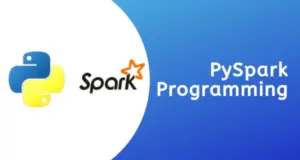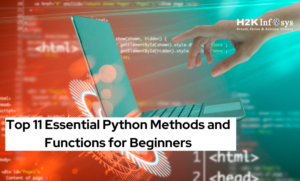The place of having a certification cannot be overemphasized in building a solid career. Not only will it help you have a firm grasp of concepts you didn’t know, but it also gives you the confidence in taking on complex problems going forward. A certification in Python is even more paramount as an acclaimed Python developer.
In this article, you will discover some of the best Python certifications you can have. These certifications are renowned and would give you an edge in the eyes of prospective employers. Alright. Let’s blast off.
Different organizations have different certifications. One of the best organizations for Python certification is the OpenEDG Python Institute. Their certification exams are split into three stages:
- The entry-level called Certified ENtry-Level Python Programmer (PCEP)
- The associate level called Certified Associate in Python Programming (PCAP)
- The professional level called Certified Professional in Python Programming (PCPP)
The expert stage called Certified Expert in Python Programming (PCEP) is an addition that would be discussed momentarily.
Certified Entry-Level Python Programmer (PCEP)
The PCEP certification tests the candidate’s knowledge of the foundation of Python programming. The candidates should have a robust understanding of the syntax and semantics in Python and how to use Python’s standard library to solve common problems. This is arguably one of the best certifications a beginner in Python can have under their belt. In preparation for the exam, you should know the following details.
Name: Certified ENtry-Level Python Programmer (PCEP)
Code: PCEP-30-01
Exam duration: 45 minutes
Language: English
Level: Beginners
Pass mark: 70%
Exam fee: $59
Exam type: Single choice questions, Multichoice questions, drag and drop and fill in the gap
Syllabus:
- Basic string formatting and outputting methods
- Using boolean data types
- Difference between interpretation and compilation
- Naming variables and their conventions
- Creating and calling functions
- Logical operations
- Bitwise operations
- Control flow
- In-built data structures: dictionary, tuples, lists, etc
- List slicing, indexing, and working with multidimensional arrays
- Using the assignment operator in Python
Certified Associate in Python Programming (PCAP)
The certification is a step above the PCEP certification. It would build your confidence in getting into solving real-world problems with Python. Given that certification is key to standing out of the crowd in the labor market. This certification would also pave the way to move on to a more professional stage in Python. A certified PCED holder should be familiar with Object-Oriented Programming (OOP), basic coding techniques, general concepts in Python, virtual environments, runtime environment, terminal, shell, etc. This is a fundamental certification if you wish to step up your game in Python and become competent in Python programming.
In preparation for the exam, you should know the following details.
Name: Certified Associate in Python Programming (PCAP)
Code: PCEP-30-02
Exam duration: 1 hour and 5 minutes
Language: English
Level: Associate
Pass mark: 70%
Exam fee: $285
Exam type: Single choice questions and Multichoice questions.
Syllabus
- Basic string formatting and outputting methods
- Using boolean data types
- Type Casting and converting data types
- Difference between interpretation and compilation
- The basics of Object-Oriented Programming
- Inheritance in Python
- Naming variables and their conventions
- Local and global variables
- Creating and calling functions
- Logical operations
- Bitwise operations
- Control flow
- In-built data structures: dictionary, tuples, lists, etc
- List slicing, indexing, and working with multidimensional arrays
- Using the assignment operator in Python
- Python modules and packages
Certified Professional in Python Programming (PCPP)
This third stage of certification comes in two certifications: PCPP 1 and PCPP 2. A candidate with both certifications is expected to be able to:
- Carry out advanced coding assignments in Python and other closely related technologies
- Apply the concept of advanced OOP in codes
- Build tools, modules, and frameworks
- Know how to work with network programming and applications with Graphics User Interface (GUI)
- Work with several third-party modules and libraries in Python
Now, let’s have a closer look at each of the certifications
Certified Professional in Python Programming 1 (PCPP 1)
This certification seeks to tests a candidates proficiency in advanced concepts in Python such as:
- Object-Oriented Programming
- Working with virtual environments
- Programs with GUI
- PEP recommendations and conventions
- Processing text files
With this situation, you have a global recognition of an advanced Python programmer. In preparation for the exam, you should know the following details.
Name: Certified Professional in Python Programming 1 (PCPP 1)
Code: PCEP-32-101
Exam duration: 1 hour and 5 minutes
Language: English
Level: Associate
Pass mark: 70%
Exam fee: $195
Exam type: Single choice questions, Multichoice questions, drag, and drop, fill in the gap.
Syllabus
- Creating classes on an advanced level and other technical OOP concepts
- Understanding the maths behind tools
- File programming
- GUI programming
- PEP recommendations and conventions
- Metaprogramming
- Working with other advanced modules and libraries in Python
Certified Professional in Python Programming 2 (PCPP 2)
This certification is great for folks that wish to showcase their advanced knowledge in Python and many other neighboring certifications on paper. Before you can latch on to this certification, you must be proficient in these fields:
- Design patterns
- Building and distributing Python packages
- Interprocess communication (IPC)
- Database management especially MySQL
- Program Testing methods and principles
In preparation for the exam, you should know the following details.
Name: Certified Professional in Python Programming 2(PCPP 2)
Code: PCEP-32-201
Exam duration: 1 hour and 5 minutes
Language: English
Level: Associate
Pass mark: 70%
Exam fee: $195
Exam type: Single choice questions, Multichoice questions, drag, and drop, fill in the gap.
Syllabus
- Working with files in local directories
- Application of CRUD methods
- Design patterns: Factory, Command, Observer, Proxy, State Design, Singleton, Template Method
- Threading, multithreading, multiprocessing, subprocess, and synchronizing multi processes
- SQL commands
- Network Programming
- Working with relational databases
- Using pip
- Program testing methodologies
- Using pip and its conventions
- Building and sharing packages in Python
Certified Expert in Python Programming (CEPP)
This certification is reserved for professionals that have taken all 3 above certifications and have passed. Undoubtedly, folks who have taken these certification exams and passed can be regarded as Python experts with a solid understanding of even advanced topics in the language.
Other Organisation’s Certification
Even though openEDG certification is the most renowned, there are other organizations that offer certifications in Python. Worthy of mention is Microsoft’s Python Certification. You are at liberty to check out some of their certifications such as the Microsoft Technology Associate 98-381: Introduction to Programming using Python. There are also practice tests you can take on to brace up for the real certification exam. The best practice test you can take include:
- Microsoft Python Certification Exam
- Certified Entry-Level Python Programmer (PCEP)
- Python MTA 98-381 Exam
In summary, remember that certification can easily make you stand out of the crown in the job market. If you are a beginner and you are confused about where to begin your journey in Python. You can begin with the beginner’s certification. Click on any of the certifications to get started.





























One Response